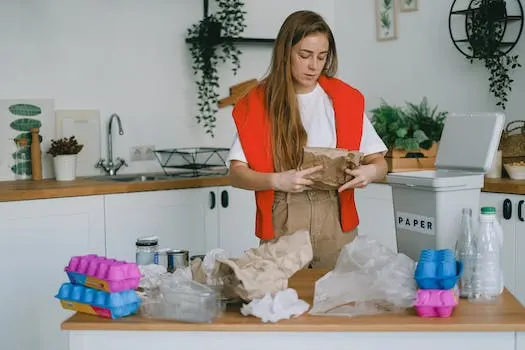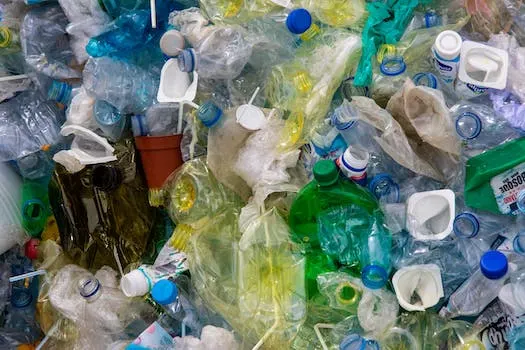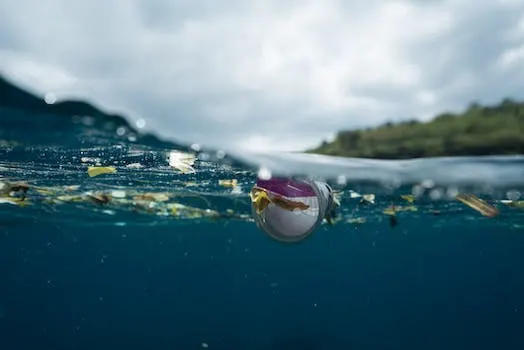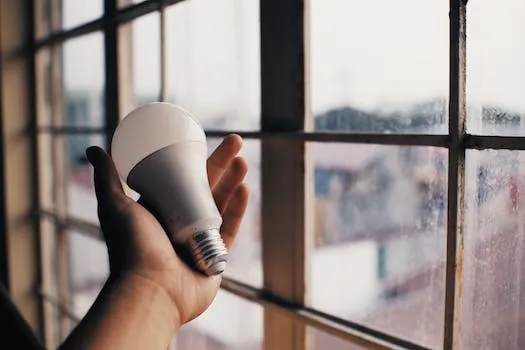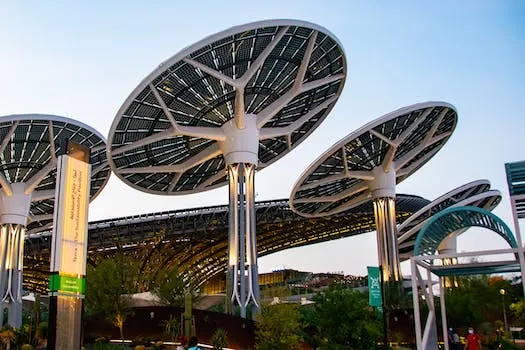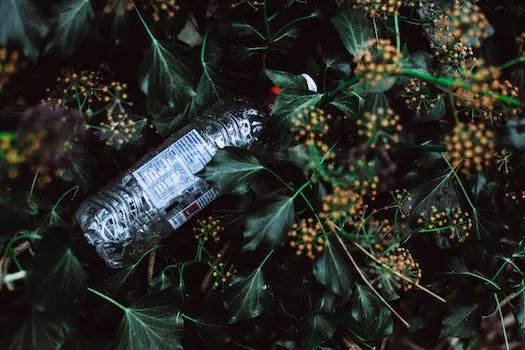
Plant-Based Plastic: What You Need to Know
As environmental awareness continues to grow, people are looking for more sustainable alternatives to traditional plastic. Plant-based plastic is becoming an increasingly popular option as it is made from renewable sources such as corn and sugar cane. In this article, we will explore what plant-based plastic is, how it compares to other types of plastics, and why it is a great choice for those looking to reduce their environmental footprint.
Bioplastic has been gaining traction in the single-use plastic market with experts weighing in on its potential benefits. Bioplastic can be used for items like straws and utensils and requires much less energy during production than conventional tree fibre products or polystyrene. Sugarcane bioplastic has become a popular choice in the packaging world due to its eco-friendly properties; it can be used for bags, takeaway containers, and even straws as an alternative to traditional plastics made from fossil fuels which are not renewable or sustainable.
Sugarcane bioplastic offers many advantages over traditional plastics; not only does it require less energy during production but also breaks down faster when exposed to the environment making it a more sustainable option overall. Additionally, sugarcane bioplastics have been found to be stronger than regular plastics meaning they can last longer while still being able to decompose naturally when disposed of properly.
In conclusion, plant-based plastic provides an excellent alternative for those looking for more sustainable options that reduce their environmental footprint without sacrificing quality or durability. With its ability to break down faster than regular plastics while still providing strength and durability makes sugarcane bioplastics a great choice when searching for eco friendly products such as straws or utensils that don't harm our planet's resources in the long run
What Is Plant-Based Plastic?
Plant-based plastic is a type of plastic that is made from renewable sources such as corn, sugar cane, and other plants. It is designed to be biodegradable, meaning it can be broken down by bacteria and other organisms into harmless substances that are not harmful to the environment. Unlike traditional plastic which is made from petroleum-based raw materials, plant-based plastic does not contain any non-renewable components and is made from renewable sources. This type of plastic is also known as bioplastic, bio-based plastic or biodegradable plastic and can be used to make a wide range of items including food packaging, medical supplies and industrial components.
The production process for plant-based plastics involves extracting sugar from plants like corn or sugarcane which are then converted into polymers through a chemical process. These polymers form the basis for the production of bioplastics which may either be biodegradable or nonbiodegradable depending on their composition. Bioplastics are often referred to as bio-based plastics due to their origin in organic matter such as plants. In recent years there has been significant progress in the development of Biodegradable plastics largely derived from renewable natural resources such as starch or cellulose derivatives making them an increasingly popular choice due to their environmental benefits over traditional petroleum based plastics.
Advantages of Plant-Based Plastic
Plant-based plastic has several advantages over traditional petroleum-based plastic. For starters, it is more sustainable, as it is made from renewable sources such as crops and other biological materials instead of non-renewable components. This means that plant-based plastics are biodegradable, meaning they can be broken down by bacteria and other organisms into harmless substances, rather than remaining in the environment for centuries. In addition to being more sustainable, plant-based plastic is often lighter and less expensive than traditional petroleum-based plastic. This makes it a great choice for those looking to reduce their environmental footprint without breaking the bank.
The production of plant-based plastics also has a lower carbon footprint compared with fossil fuel based plastics due to their use of renewable raw materials instead of crude oil. Furthermore, these bioplastics can exhibit advantageous materials properties which make them an attractive option for packaging applications such as food containers or beverage bottles. However, only 20% of the ingredients need to be from renewable organic sources in order for a product to be labelled 'plant based'.
Overall, plant based plastics offer numerous advantages over traditional petroleum based products including sustainability benefits due to their use of renewable resources and biodegradability; cost savings due to their lighter weight; and improved material properties which make them suitable for packaging applications. With these benefits in mind, many companies are now turning towards plant based alternatives when considering their packaging needs - making this an increasingly popular choice among consumers who want an environmentally friendly option without sacrificing quality or performance.
Disadvantages of Plant-Based Plastic
Despite the many advantages of plant-based plastic, there are some drawbacks to consider. For starters, it is not as widely available as traditional plastic, making it difficult to find in stores. Additionally, it is more expensive than traditional plastic and may not be cost-effective in some cases. Plant-based plastic also lacks the sturdiness of traditional plastics and is not suitable for certain applications due to its lack of heat resistance. Furthermore, plant-based plastics are not as durable as traditional plastics and will not last as long.
The environmental benefits of biodegradable plastics have made them increasingly popular in recent years; however, there are several disadvantages associated with this type of material that should be taken into consideration before using it for packaging or other products. Firstly, biodegradable plastics are generally more expensive than their non-biodegradable counterparts due to their limited availability on the market. Additionally, they tend to be less sturdy than regular plastic and may not be suitable for certain applications that require higher temperatures or greater durability over time.
Biodegradable materials can offer a number of advantages over conventional petroleum-based products such as reduced use of fossil fuel resources and a smaller carbon footprint; however these benefits come at a cost since bioplastics tend to break down faster than regular plastics when exposed to sunlight or moisture which can limit their lifespan significantly depending on the application they’re used for. Furthermore, while most bioplastics can decompose naturally over time if disposed correctly they still need special disposal methods such as composting or anaerobic digestion which may not always be available depending on where you live making them less practical in some cases compared with regular petroleum based materials which can simply be thrown away without any special requirements needed for disposal purposes.
In conclusion while bioplastic offers several environmental benefits compared with conventional petroleum based materials there are still several drawbacks associated with this type of material that should be taken into consideration before using it including its limited availability on the market higher cost compared with regular plastic lack of sturdiness when exposed to high temperatures shorter lifespan when exposed to sunlight or moisture and special disposal requirements needed if you want them decompose naturally over time instead being sent off landfill sites like ordinary throwaway items made from petroleum based materials
Conclusion
In conclusion, plant-based plastic is a great choice for those looking to reduce their environmental footprint. It is made from renewable sources, is biodegradable, and often lighter and less expensive than traditional plastic. However, it is not as widely available as traditional plastic and may not be suitable for certain applications. Ultimately, the decision to use plant-based plastic should be based on individual needs and preferences.
When it comes to bioplastics relieving pressure on the environment, experts are divided in opinion. While some believe that bioplastics can help reduce pollution levels by replacing traditional plastics with more sustainable alternatives such as PlantBottle™ packaging which looks like PET but has a lighter footprint on the planet and its resources; others argue that the solution lies in overhauling our current waste management system rather than developing better bioplastics.
It's important to remember that even if you choose plant-based plastics over traditional ones, you still need to dispose of your materials properly - compostable plastics should go into commercial composting facilities instead of landfills or oceans - in order for them to have a positive impact on our environment.
Ultimately, when deciding whether or not to use plant-based plastics over traditional ones it's important to consider your individual needs and preferences while also taking into account their availability and suitability for certain applications before making a final decision.
